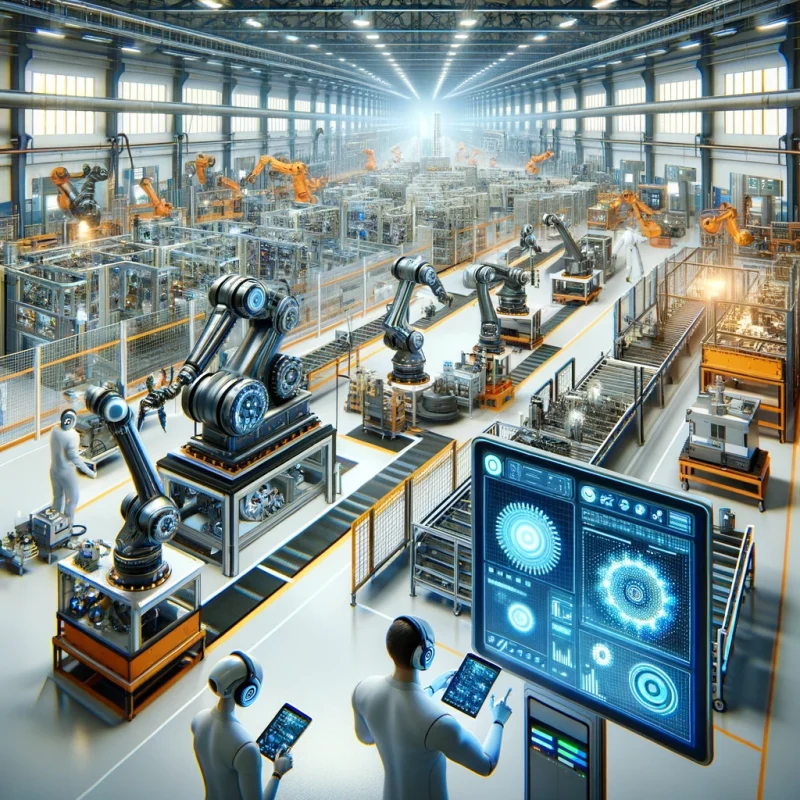
- The article emphasizes the importance of having access to the right data, the knowledge to interpret it, and the skills to engineer sustainable manufacturing solutions.
- The piece underscores the necessity for manufacturers, regardless of size, to adopt smart manufacturing (SM) and artificial intelligence (AI) to improve factory operations and enhance product quality, flexibility, and market growth.
- Practical applications of AI in manufacturing include asset management, quality control, and operational optimization through assessment monitoring, estimation/prediction modeling, and operational mapping.
This article highlights the transformative impact of Artificial Intelligence (AI) and Machine Learning (ML) in the manufacturing sector, particularly within the context of Smart Manufacturing (SM). It delves into how AI and ML technologies enhance productivity, precision, and performance in manufacturing operations. AI is depicted as a broad set of software systems capable of recognizing, explaining, and forecasting various operational scenarios for better control, management, optimization, and automation of manufacturing processes. ML, a subset of AI, is specifically noted for its ability to use historical data to understand current states and predict future outcomes. The article emphasizes the importance of having access to the right data, the knowledge to interpret it, and the skills to engineer sustainable manufacturing solutions. It highlights the role of digital twins, simulation, feature recognition, and natural language processing in advancing manufacturing operations.
The piece underscores the necessity for manufacturers, regardless of size, to adopt SM and AI to improve factory operations and enhance product quality, flexibility, and market growth. It stresses that SM’s benefits extend beyond factories, contributing significantly to the digitization and interoperability of supply chains, thereby enhancing performance, resilience, and environmental sustainability. The author also advises on the importance of a structured approach to data management as a foundation for successfully implementing AI/ML solutions, advocating for starting small with AI projects and gradually scaling up based on initial successes.
Furthermore, the article outlines practical applications of AI in manufacturing, such as asset management, quality control, and operational optimization through assessment monitoring, estimation/prediction modeling, and operational mapping. It encourages manufacturers to engage with trusted partners and leverage public-private partnerships for guidance and support in navigating the complexities of AI implementation. The Clean Energy Smart Manufacturing Innovation Institute (CESMII) and other entities are highlighted as valuable resources for training and support. The overarching message is clear: manufacturers should proactively embark on their AI journey to stay competitive and achieve operational excellence, emphasizing the permanence of SM, AI, and the need for a data-savvy workforce in modern manufacturing.


Leave a Reply
You must be logged in to post a comment.